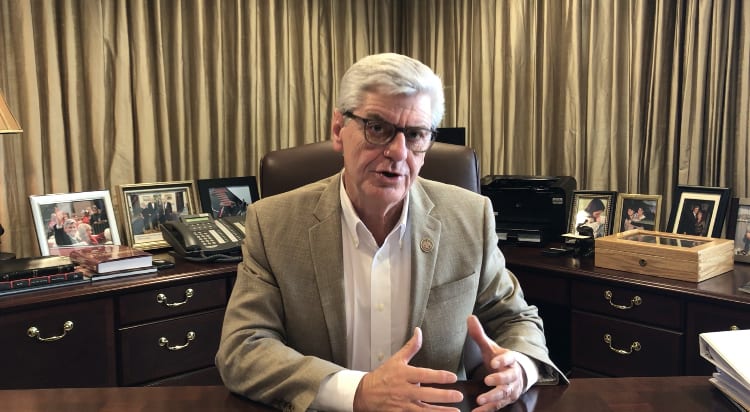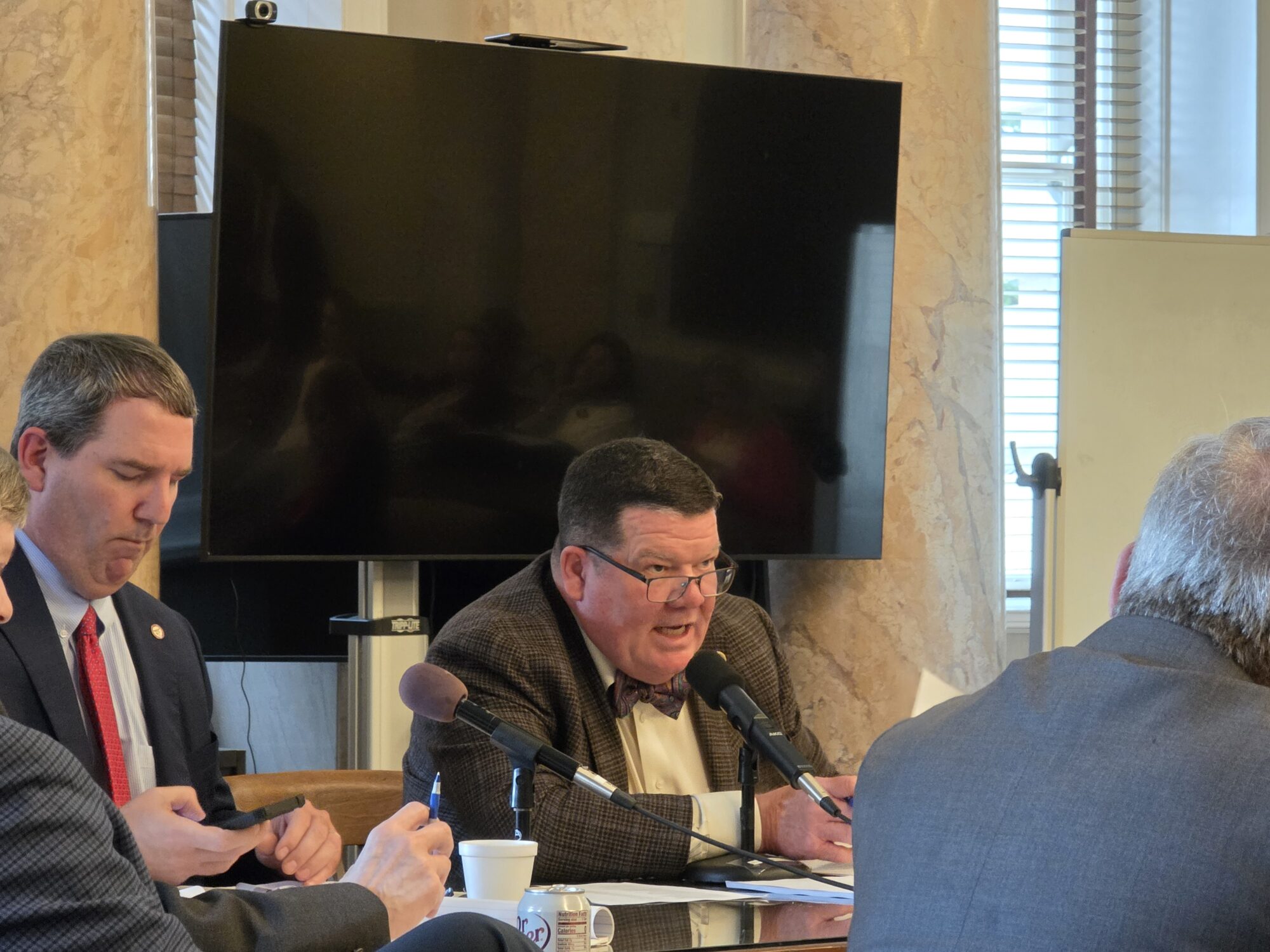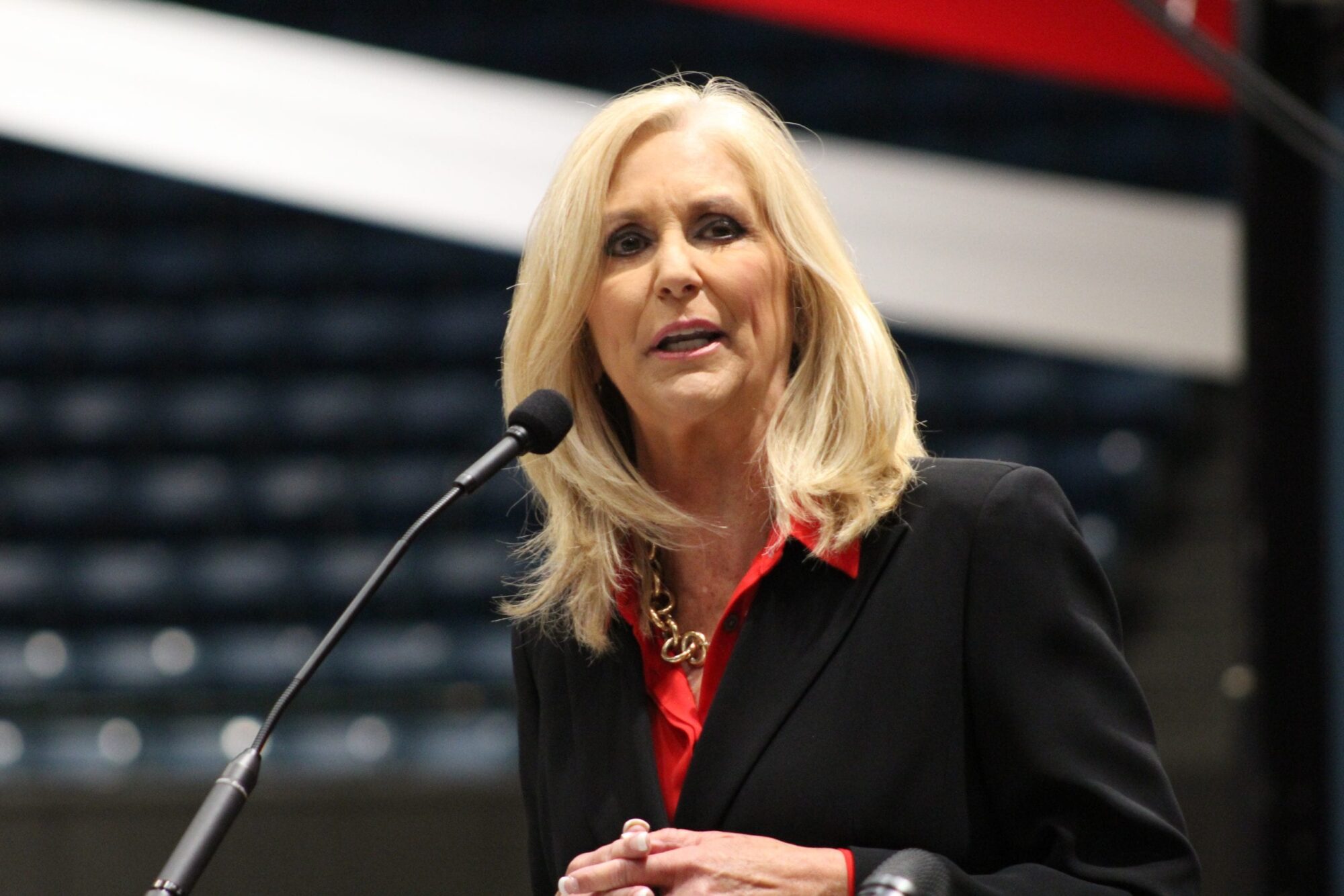
Gov. Phil Bryant announced a list of 15 restoration projects for 2019 during the annual Mississippi Restoration Summit in Biloxi on Tuesday. When implemented, these projects will add more than $53 million to the total of more than $560 million already being spent on restoration projects in the wake of the 2010 Deepwater Horizon oil spill. The summit is hosted by the Mississippi Department of Environmental Quality (MDEQ).
“I am proud of the legacy during this administration of ensuring restoration funds are spent in the most effective and strategic ways to restore and enhance our natural resources and our economy following the oil spill,” Gov. Bryant said. “This latest round of projects furthers our efforts to improve our natural resources for wildlife, for marine life, for sportsmen, for recreation and for beach visitors.”
“These projects are essential steps in our ongoing efforts to improve South Mississippi’s natural resources and economy. While all of these projects are important, we want to highlight during the summit our water quality program which is projected to make real improvements to the Gulf Coast’s water quality. That has a direct impact on the essential commercial and recreational use and enjoyment of the Coast’s natural resources,” said Gary Rikard, MDEQ Executive Director.
The projects announced for 2019 are funded through the RESTORE Act and the National Fish and Wildlife Foundation Gulf Environmental Benefit Fund.
RESTORE Act Projects:
Mississippi Gulf Coast Water Quality Improvement Program (additional $8 million in 2019; total RESTORE funding $68 million) – This program is identifying the sources of water quality issues in Mississippi coastal waters and implementing solutions such wastewater system upgrades.
Beneficial Use of Dredge Materials for Marsh Creation and Restoration in Mississippi (additional $7 million in 2019) – This program creates new marsh and restores and enhances existing marsh habitat through the beneficial use (BU) of materials from maintenance dredging activities across the three coastal counties.
Mississippi Beachfront Resilience ($5 million) – This project will increase the resiliency of Mississippi Gulf Coast beaches by installing native plants such as sea oats and sand fencing to facilitate the formation of sand dunes to mitigate beach erosion and extend the existing concrete boardwalk system on the seawall to mitigate sand migration and loss onto Highway 90.
University of Southern Mississippi Oyster Hatchery and Research Center (additional $4 million in 2019; total RESTORE funding $11.7 million) – This project supports USM’s development of an oyster hatchery and research center at the Gulf Coast Research Laboratory at Cedar Point in Ocean Springs. The oyster hatchery and research center will produce oyster larvae and conduct oyster aquaculture research to support the state’s oyster restoration efforts.
Buccaneer State Park Improvements ($1 million) – This project will contribute to the enhancement of Buccaneer State Park as a regional tourism attraction. Hancock County and the Mississippi Department of Wildlife, Fisheries, and Parks have developed plans to upgrade the park’s waterpark, RV campsites, ecotourism, and family entertainment areas.
Biloxi Point Cadet Marina Upgrades ($3 million) – This project will support infrastructure upgrades to Point Cadet Marina to increase in tourism activity through sport fishing events, such as the Billfish Classic, and enhanced recreational opportunities. The project is a component of the City of Biloxi’s overall efforts to improve waterfront access and amenities in East Biloxi/Point Cadet to increase economic activity and redevelopment in the area.
Mississippi Gulf Coast Community College Center for Security and Emerging Technologies ($3 million) – This project will support construction of a workforce training center focused on advanced Information Systems Technologies training (e.g. cybersecurity, coding, simulation, and emerging technologies). The center will be constructed on MGCCC’s Jefferson Davis Campus to meet the high-tech IT training needs of current employers and support economic expansion in key industry sectors.
University of Southern Mississippi Ocean Enterprise Entrepreneurship Program ($1 million) – This funding will support USM’s development of a combined degree program in both Ocean Engineering and Business to encourage entrepreneurship in Ocean Engineering and technology development. The program will blend engineering and business classes to train students in advanced concepts in both disciplines. This program will support USM and State of Mississippi’s overall Ocean Enterprise vision to grow the Blue Economy and establish the Mississippi Gulf Coast as a national leader in ocean science and technology development.
City of Moss Point I-10 Commercial Corridor Improvements ($3 million) – This project will support transportation system improvements and benefit the city’s economy in the commercial district near the Interstate 10 and Highway 63 interchange in Moss Point. Roadway infrastructure and traffic flow improvements in the Moss Point I-10 commercial corridor will enhance access to existing business, support additional commercial development in the area, and improve public safety.
Mississippi State University Northern Gulf Aquatic Food Research Center ($3 million) –This project will support MSU’s construction of an analytical laboratory for seafood safety testing and quality assurance. The Mississippi Gulf Coast region currently lacks a seafood safety testing and quality assurance laboratory with the capacity and capabilities to support the seafood industry.
National Fish and Wildlife Foundation Projects (NFWF) Projects:
Reef Fish Assessment for Mississippi Coastal and Nearshore Gulf Waters – Phases III and IV (additional $5.96 million in 2019; total NFWF funding $12.9 million) – Theseprojects will fund continuing assessments of reef fish in coastal Mississippi and nearshore Gulf waters. Collection of biological, environmental, and fishery-dependent data will help to reduce the scientific uncertainty around several key factors influencing red snapper and other reef fish population structures and stock assessments.
Restoration of Oyster Resources in the Mississippi Sound – Pilot Oyster Cultch Survivability Implementation ($3.39 million) – This project will support pilot oyster cultch deployments to test and understand best methods for oyster survival to inform future large-scale oyster restoration.
Invasive Species Management on Coastal State Lands – Phase II ($836,000) – This project will focus on apple snail removal in and around the Pascagoula River Coastal Preserve. Apple snails are an invasive species that feed on marsh grasses resulting in a loss of critical marsh habitat.
Enhancement of the St. Louis Bay Oyster Reef ($2.8 million) – This project will provide funding to The Nature Conservancy to restore and enhance the St. Louis Bay TNC oyster reef with resilient oyster reef habitat.
MDMR Mississippi Offshore Artificial Reef and Habitat Enhancement ($2.2 million million) – This project will be implemented by the Mississippi Department of Marine Resources and will utilize concrete from Ingalls Shipbuilding’s shipyard modernization project as artificial reef material to increase and enhance off-shore reef habitat. Concrete materials will come from Ingalls’ demolition of the dry dock and provide ecological benefits to marine fisheries in offshore areas.
Comprehensive information about all of Mississippi’s restoration efforts can be found at www.restore.ms.
Mississippi Department of Environmental Quality Press Release
11/12/2019











